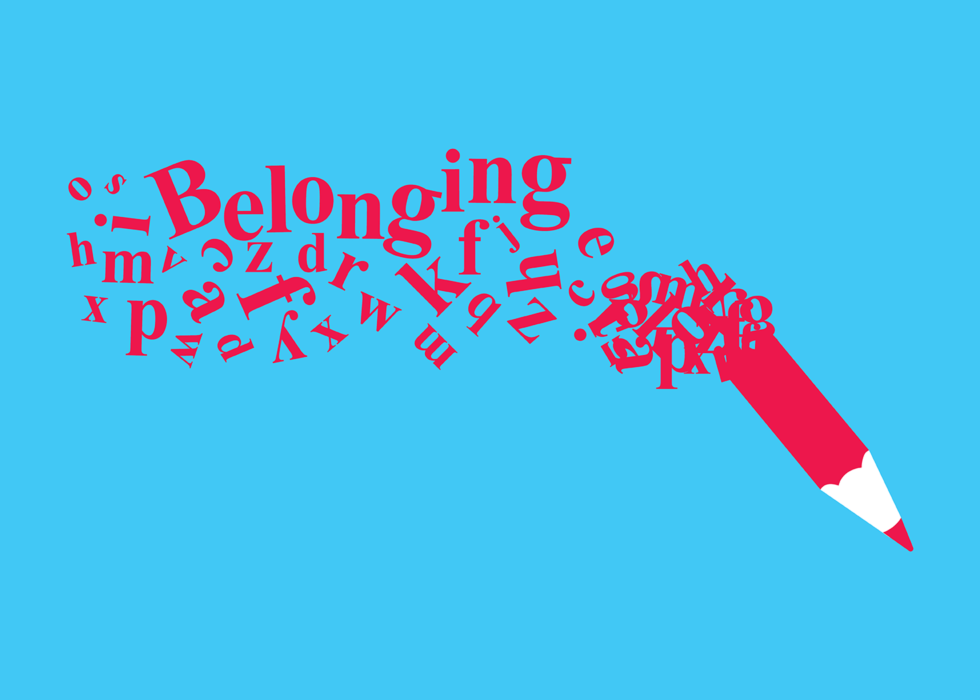Given the great level of involvement in our Student Poetry Competition over the past two years, Independent Schools Victoria (ISV) is excited to do it all again in 2022… this time with an added twist, writes Diane Bourke.
Students will now have an opportunity to submit a video of themselves speaking or performing their words, allowing them to bring their poetry to life with energy and conviction.
We look back on poets like Amanda Gorman – who performed her poem The Hill We Climb at Joe Biden’s presidential inauguration – who help us make sense of their world. Amanda Gorman brought poetic language into contact with everyday speech… ‘there is always light, if only we are brave enough to see it, if only we are brave enough to be it’.
Also, previous winning poems became even more compelling when heard being read online by their authors. In our minds, this made the ‘twist’ a logical next step. Nevertheless, we understand that writing a poem without performing it, will be preferable for many students and these too will be welcomed as in the past.
As in previous years, students can select their own topic or explore our optional theme, which this time is ‘Belonging’. Emily Dickinson summed up Belonging succinctly and creatively with the words, ‘I imagine, therefore I belong and am free’.
To assist aspiring poets and their teachers, we offer you the following definitions, thoughts and research which may help as you navigate the topic. Naturally, your own perspectives will also be of value.
Belonging begins at birth and can be complex. The Early Years Learning Framework for Australia is titled Belonging, Being, Becoming. It states that belonging – knowing where and with whom you belong – is integral to human existence. Individuals may belong to any or all of a family, a cultural group, a neighbourhood, a club and the wider community.
In early childhood, and throughout later life, relationships are crucial to a sense of belonging. Belonging is central to personal development in that it helps shape who children are and expands who and what they can become. It plays a key role in an individual forming healthy relationships and living a purposeful life.
Project Wayfinder, a course offered by ISV for teachers, explores Belonging deeply and provides a three-year course to initiate and support a sense of belonging in lower secondary years students. The three-year sequence is like the one set out in the Early Years Framework. The course begins with understanding, valuing and accepting ourselves. It’s about working out who we really are, in all our uniqueness, formulating what matters to us, what we think, what we feel, what we fear and what we hope for.
Next comes understanding, valuing and accepting each other. This helps us understand that, to Belong, everyone does not need to be just like us.
Belonging in community means valuing and accepting each other for who we are, focussing on both similarities and differences.
Lastly, Belonging isn’t something finite that we can achieve, tick off and file away. It is an ongoing journey that is always unfolding as individuals learn about themselves, other people and the natural world. As in any journey, there will be twists and turns to navigate.
Research shows that students who feel they belong:
- have greater levels of self-esteem and self-efficacy
- have a stronger sense of self identity
- have better stress management
- have greater satisfaction, happiness and optimism
- have stronger relationships with peers and teachers
- have high levels of motivation and achievement.
To put it simply, Belonging is the acceptance, celebration and inclusion of our fullest selves without altering or hiding who we are to meet the expectations of others.
‘I am part of all that I have met’, a quote from Alfred Tennyson sums up Belonging well, as does the Islamic proverb, ‘A lot of different flowers make a bouquet’.
However, notwithstanding all the above, while many people feel they belong and recognise benefits associated with that concept, it is important to recognise that some individuals – old and young alike and including people generally recognised as being successful – do not feel this way.
Some entries to the competition are likely to reflect the thoughts and feelings of these people, thoughts and feelings that reflect a difficult and tough existence.
The author Jeanette Winterson reminds us that life can be tough, and a tough life needs a tough language to adequately describe how life really is. Poetry can be that language tool. Poetry isn’t a hiding place. It is a finding place, so all participants should feel free to speak up.
In conclusion, once again we share the poet Rumi’s words:
‘Out beyond ideas of wrongdoing
and rightdoing there is a field.
I’ll meet you there’.
That field is now waiting for contributions to the 2022 poetry competition.
Find out more about the Student Poetry Competition 2022.
Diane Bourke is a Project Manager at Independent Schools Victoria.

